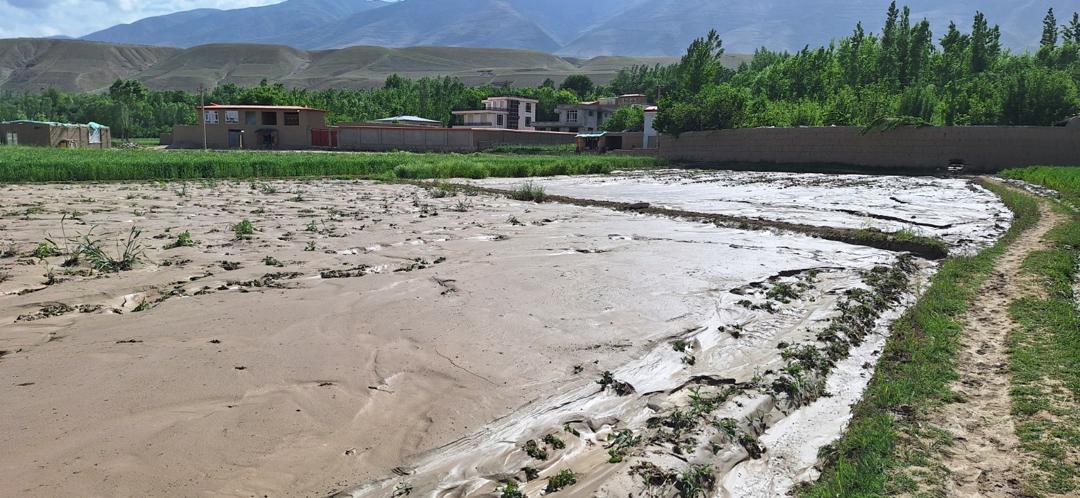KABUL, Afghanistan — Flash floods have swept through parts of Badakhshan Province, northeastern Afghanistan, damaging homes, destroying farmland, and killing livestock in what humanitarian officials say is a severe local climate-related disaster.
According to the Food and Agriculture Organization (FAO) of the United Nations, the floods have affected more than 1,000 households in the districts of Jurm and Baharak, submerging entire swaths of cropland and upending rural life in an already fragile province. At least 1,233 hectares of farmland — including critical wheat fields — have been submerged or washed away.
The floods have also severely impacted the region’s pastoral communities, affecting more than 150 herders and killing or sweeping away over 500 livestock, a devastating loss in a province where most families rely heavily on agriculture and animal husbandry for their survival.
In Yumgan District, FAO reported additional damage to cereal crops and grazing lands, further compounding food insecurity in one of Afghanistan’s most remote and impoverished provinces.

Climate vulnerability and food insecurity have converged in Badakhshan over recent years. The mountainous region, prone to landslides and flash floods, has seen increasingly erratic weather patterns, attributed in part to deforestation and broader regional climate change.
This incident comes as Afghanistan faces a worsening humanitarian crisis, with more than half the population in need of assistance and a healthcare system that remains under strain. Rural communities, particularly in the northeast, have been largely left out of national recovery plans, and aid access is increasingly restricted due to political conditions.
Taliban have not issued a formal statement on the floods, and it remains unclear whether emergency response teams have been deployed to the affected districts. International humanitarian agencies, already stretched thin, have warned that their capacity to respond is diminishing due to funding shortfalls.
Local residents in Jurm described scenes of destruction and desperation.
As climate shocks become more frequent, development and humanitarian experts warn that without robust early warning systems, flood protection infrastructure, and climate-resilient agriculture, provinces like Badakhshan will remain dangerously exposed.





